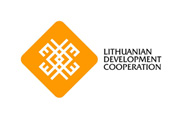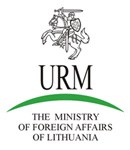The Kremlin feeds on Europe`s gloom
In J. K. Rowling’s bestselling Harry Potter novels, ghoulish “Dementors” are the special security agents of the wizard world. They hunt and capture wizards that have turned to crime (or, in darker moments of the story, are politically persecuted) and guard them in a high-security prison. To capture their super-powerful prey and to keep them in a state of passivity, the Dementors literally sap hopes and joy from their victims.
Despair as the new terror
Much like Dementors, the Kremlin spooks dish out a clear message to their neighbors: There is no hope, there is nowhere to run to.
Much has been written about the “weaponization of information” by Russia’s current rulers. It has also been noted that Russia does not seem to promote any particular ideology or vision of the future in the way the Communist regime did.
But the Kremlin does not need to offer a Communist paradise down the road. Putin’s authoritarianism peddles despair.
Certainly, Stalin’s regime was dealing in the same fare. But today’s unholy alliance of security operatives with political technologists has patented a new approach. When you control what people can see through television, you don’t need massive repression to get the message across: relatively few, but highly choreographed, spectacular and well-timed political punishments – Khodorkovsky, Litvinenko, Pussy Riot - do the trick.
If you control the media, hopelessness generates obedience cheaper than terror does. The show of force is there to pre-empt resistance. And nothing promotes despair like the context of an impending global doom.
Masters of Chaos
In the mouths of President Vladimir Putin and the Kremlin elite, Chaos is the real nemesis. Chaos means lack of order, the holy grail of Putin’s Russia. The much quoted perception of the collapse of USSR as the “greatest geopolitical tragedy” is inscribed in the context of ensuing Chaos. Putin has built his political image as “the man of order” in opposition to the “chaotic 1990s” of the Yeltsin era. In his mind, democracy is chaotic and thus dangerous by nature. This message has been hammered home by his media such that even educated voters recoil from the idea of more inclusive decision-making.
To its subjects and neighbors, the Kremlin presents the current state of the world as Chaos – unpredictable, arbitrary and perilous. The onset of Chaos was hastened by the West: through the hubris of victory in the Cold War, its moral corruption and cultural decadence. “Do you realize what you have done?” a snarling President Putin scolded Western leaders from the UN General Assembly podium.
And if the West is an irresponsible Pandora, Putin casts himself as the Master of Chaos.
Its willingness and ability to deploy conventional military forces, sustain losses, and, ultimately, to use nuclear arms allows – indeed bestows the right to - Putin’s Russia to “channel Chaos” at home and in its neighborhood.
Putin offers his neighbors a gangster’s protection racket: he can either keep at bay some of the forces of objectively existing chaos (Islamic militants, migrants, terrorists, civic activists), or help them along, to make sure the offenders bear the full destructive brunt of it.
Europe’s gloomy resignation
Much has been written about the damaging effects of Russia’s information warfare on its neighbors.
But the Kremlin’s message of gloom could not have gotten so much traction without Europe’s particular penchant for self-flagellation.
Without a constant and credible supply of news fodder, the image of impending catastrophe cannot sustain itself indefinitely, just as the Soviet idea of “rotting capitalism” capsized against the evident prosperity of the West.
But turn the pages of British or French newspapers these days – tabloids and high-brow broadsheets alike – and the mood is morose. They speak of “Europe in terminal decline”, a continent “writhing” in the throes of economic, refugee, security, institutional and many other crises.
Politicians’ diatribes trot out once sacred cows of the European Union for a ritual slaughter: a number of forced or voluntary [insert the country name here] exits are pondered, border controls reinstated, the EURO is shaky and the economy sclerotic.
Such coverage is a treasure-trove, and the gloomy mood - a real boon for those authoritarians who would like to keep the eyes and minds of their subjects off the greener pastures and closer to the embrace of the evil they know.
The worst lamentations of European media are scrupulously selected, embellished, amplified to grotesque proportions and then re-transmitted to the Russian audience, as well as to Russia’s hapless neighbors.
Hope is the antidote
The 2015 Eurobarometer poll suggests, that Europeans might still feel down, but are increasingly optimistic. Almost 60% in the 2015 poll still view the economic situation as bad, against 38% who think the opposite. But some 60% are satisfied with the quality of life in their country and in the EU. Since 2013, the optimists have gained almost ten percentage points.
The European Union remains the world’s most prosperous alliance, while NATO is clearly the safest. Russia’s neighbors – often facing existential issues at home – send their troops to secure peace under EU and NATO flags. Ukrainians are fighting for their European choice, because they hope to be part of this prosperous and safe family. The Baltic nations have shown that a state can emerge from the Soviet past and move rapidly towards Europe, even leading in some innovative areas.
The EU’s kneejerk skepticism towards the attempts in Ukraine, Georgia and elsewhere to do the same is damagingly self-fulfilling.
It justifies EU inaction or lack of attention, resulting in sloppy support projects, which fail to prevent or accentuate the mistakes inevitably made by these countries along the way.
It also precludes the hope of EU membership, robbing pro-Europeans in these countries of the key motivating element of their policies. If the EU had dedicated at least as much political attention and muscle to its Eastern Neighbors as it has to the post-war transition in the Balkans, the results might have been more encouraging.
The EU has set up a task force to counter Russia’s propaganda. It is undoubtedly useful to debunk some of the most damaging fabrications. But the ultimate winning strategy must focus on encouraging optimism within Europe and providing a perspective for a European future in its neighborhood.
In J. K. Rowling’s novels, to combat the powers of Dementors one had to harness one’s most precious memories of love and sacrifice. Perhaps Europe must look no further than the values of freedom and solidarity that allowed it to rise from the ashes of the World War II, realizing the impossible dream of peace and prosperity in a generation.

 RSS
RSS Mobile
Mobile Twitter
Twitter Facebook
Facebook



